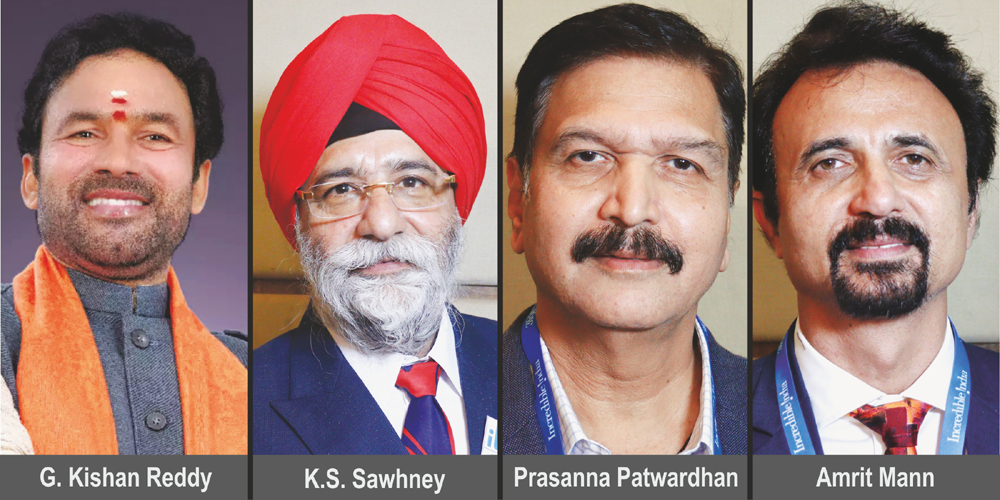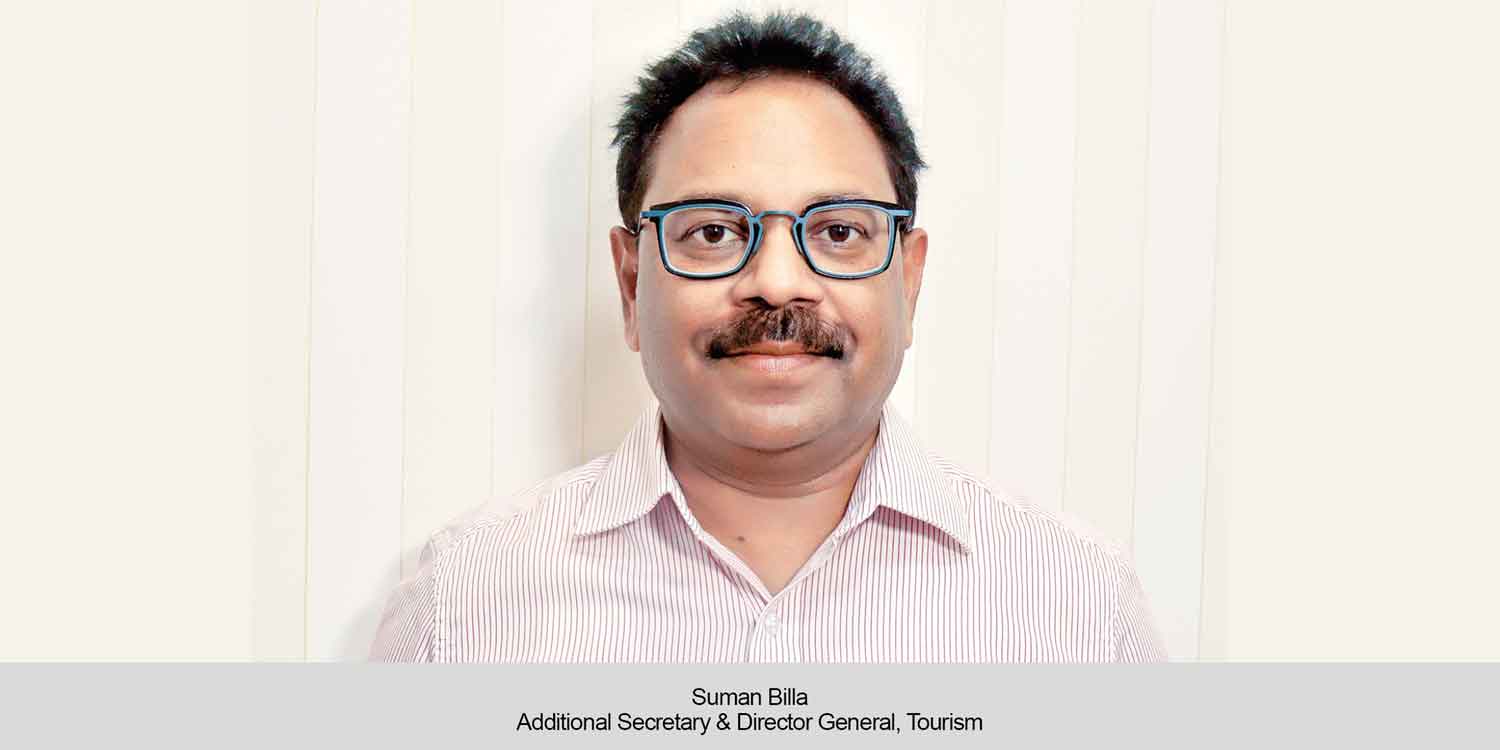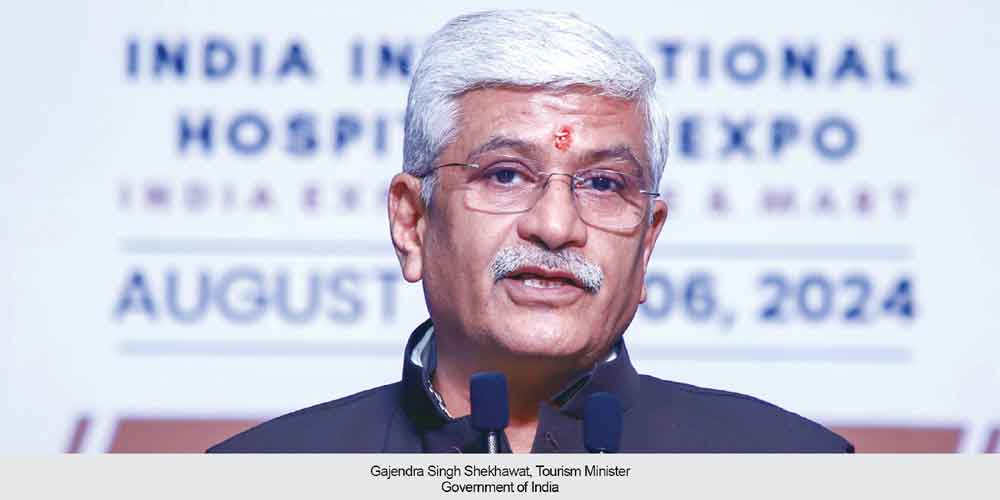ITTA’s 5th Convention organised in New Delhi for two days focused on sustainability and at the same time raised issues facing the industry with the centre government.
Bryan
The Indian Tourist Transporters Association’s (ITTA’s) 5th Convention was organised at the Hotel The Grand in New Delhi on December 22 and 23, 2022. Addressing the convention, G. Kishan Reddy, Minister of Tourism, Government of India, focused on sustainability and the potential of spiritual tourism in the country. “In the years to come, the Indian diaspora will eagerly travel to India to witness Ayodhya, Kushinagar, Varanasi, and Amritsar. Also, Char Dham, Kedarnath, and Badrinath are the top attractions for spiritual tourism,” the minister said.
He added, “In the coming years, the tourism department will promote 100 IC centres. The department is also looking forward to promote River Tourism.”
Reddy said, “Without connectivity, there cannot be any investment or development, which is why connectivity is the key to the country’s growth. India is the only nation that builds 30 km of national highway every day, thus creating continuous connectivity.”
Talking about the G20 meetings in India, he said, “The G20 country meetings are bound to steer tourism. It is a matter of pride to everyone to have this huge event take place. The event will run for a year and will have 250 meetings in 55 cities.”
K.S. Sawhney, Convention Chairman, Indian Tourist Transporters Association and MD, Bakshi Transport Service, while elaborating on the theme ‘Building Green Pastures for Safe & Sustainable Tourism’ said, “The Government of India and the Supreme Court introduced CNG in 2001. The government will likely start promoting electric and hydrogen automobiles over the next two to three years. For tour operators, this is the beginning of a new phase in which we must plan our own future actions, so that in the next six to 12 months, everyone will be thinking about introducing low-emission vehicles.” He added, “Only 2 to 4 or 5 per cent of the pollution is caused by us. Today, we have the most recent models of automobiles.”
Prasanna Patwardhan, President, Bus and Car Operators Confederation of India, said, “Sustainability is the word since everyone is committing to a greener environment, a healthier environment, and better health for the people. Therefore, sustainability and safety are also the subjects of the entire event.”
Amrit Mann, President, Indian Tourist Transporters Association and Director, Mann Tourist Transport Service, said, “”I must emphasise that India is changing extremely quickly, and soon we will have a revolution in electric and hybrid vehicles. We must be ready for this transition, as well as for the future, which will also undergo rapid change, and we must be able to adapt to it. In my opinion, 20 to 25 per cent of Indian automobiles will be electric or hybrid by 2025.”
Government on POV
Patwardhan said, “According to the government, new legislation will oblige us to purchase electric buses. There are also certain incentives offered for purchasing electric automobiles. Thus, that actually would alter how people travel. Automobile emissions will therefore decrease. There are also other government projects that will make it greener. Therefore, sustainability and the environment are hot topics.”
Sawhney said, “We are working to promote tourism, and our one and the only request with the government is that it helps us financially.”
Mann said, “The largest measure of what we are accomplishing is that there are currently no registration costs for vehicles. The second is that the GST is only 5 per cent compared to other cars, which have things like 28 per cent GST and 22 per cent cess.”
Taxation issues
Patwardhan said, “I think because of taxes, public transportation, bus transportation, and actually tourism, is a major difficulty in our nation. People are visiting abroad more frequently since taxes and tourism are getting more expensive. Therefore, there are more travellers from abroad than from home. So, unless we adopt a more optimistic perspective on taxation, nothing will change.”
Sawhney said, “We are extremely satisfied as far as taxes are concerned, the government has implemented a national permit that is on a one-time basis. We have the option to pay on a quarterly, half-yearly, or yearly basis, which is incredibly cost-effective.”
Demand from govt
Mann said, “The first is that cargo vehicles and passenger vehicles need to be kept apart. Currently, the motor vehicle statute specifies that a transport vehicle includes both passenger and freight vehicles when they enter the transport vehicle category. We want to separate them. The largest challenge is thus this. The second factor is highway speed. If you want to talk about highway speed, use Taj Express for a Volvo bus travelling at a speed of 65 km/ hour. For big vehicles and passenger cars, the speed limit must be 80 or 85 or 90 km/ hour. Once more, I reiterate that if everything is segregated, everything will be seamless.”
Expectations in 2023
Sawhney said that it was perhaps for the first time in 25 to 30 years when there were no foreign tourists, but thanks to domestic tourism, hotels were full and transporters had good business.
Patwardhan said, “So, after COVID, I think we are coming in a big way. More and more people are travelling. We thus think the future is promising. Moving on, everything would be OK.”
Mann said, “The plans we are expecting from the government is that if it can come out with some kind of schemes for us, or some kind of subsidy to us, because of the pandemic 35 to 40 per cent capacity is down and it can be built only if the government, the agencies, stakeholders come forward and the decision maker support our industry.”
 TravTalk India Online Magazine
TravTalk India Online Magazine







